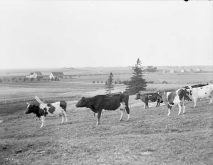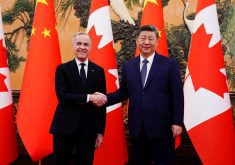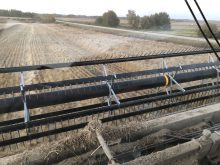For those who care about such things, it’s been an eventful few days in politics, both provincially and federally.
Here in Manitoba, Brian Pallister, the only Manitoba premier in many years to have grown up on a farm, confirmed speculation that he won’t be leading the Progressive Conservatives into the next campaign.
And federally, the Liberals appear poised to push Canadians to the polls in an early election in search of the elusive majority they were denied in the fall of 2019.
Read Also

Spoken questions are what make it an interview
Recently, I was exchanging emails with the media email account at a government agency, hoping to reach a source for…
While it might be tempting to ignore all these machinations and just enjoy the rest of the summer, both of these moves could have big impacts on the province’s agriculture sector.
Many of those who are thought to be interested in the province’s top job — Finance Minister Scott Fielding, Minister of Sustainability Rochelle Squires, former Tory MP Shelly Glover and Winnipeg city councillor Scott Gillingham — are decidedly urban voices.
That’s not necessarily a bad thing, but one has to wonder if the new occupant of the premier’s office will be as receptive to rural and agricultural issues if one of them is selected.
There will still be strong rural voices around the table, including Ralph Eichler, who currently holds the agriculture portfolio for a second stint. But nothing replaces having someone with that understanding of the sector in the top slot.
Federally, it could mean an already-urban government becomes even more so. Here in Western Canada, the federal Conservatives will almost certainly once again win a lot of seats. While nothing is certain in politics, it’s pretty hard to imagine Conservative members of Parliament such as Larry Maguire or Ted Falk will find themselves out of office, but it’s unlikely that regional support is going to translate into a lot of seats elsewhere.
Most polling in recent months shows the federal Conservatives trailing the Liberals by a considerable margin while under a leader who’s failed to capture the imagination of Canadian voters. Erin O’Toole was said to be the first choice of just 20 per cent of Canadian voters in a recent Abacus poll.
The most popular leader was the NDP’s Jagmeet Singh, who was held in highest esteem by 38 per cent of respondents in the same poll.
However, as has often been noted, Canadians don’t vote for prime ministers. They vote for parties and local MPs, and the NDP support at 20 per cent is significantly lower than Singh’s personal popularity.
Many political observers say the gamble is for a majority, but the reality is voters could return another minority, albeit with a different balance of power. If that is the case, whether the NDP or Conservatives perform better will have a real impact on agriculture.
The NDP has had a markedly ‘green’ agriculture platform during recent election cycles, and it doesn’t seem likely that will change much. Which means if it’s holding the balance of power, there could be impetus for an already controversial agriculture agenda to shift onto even more unfamiliar ground for the commercial agriculture sector.
If the Conservatives manage to win a minority — the numbers make a majority very unlikely — the agenda is likely to be one of trade and market access.
And if the Liberals get their majority one would expect the status quo to continue.
All of this is very important because there are some fairly high stakes at play in the coming year or so.
The saga of our trade spat with China will surely come to a head when Meng Whanzou’s extradition hearing wraps up.
The federal-provincial agriculture policy framework is about to expire, and there’s a lot of wrangling ahead before a new one emerges. The Prairie provinces have been proposing a substantial revision which would replace AgriStability with a whole-farm revenue insurance program.
And of course, there’s the long and painful drought the province has been enduring, sparking the need for relief for many sectors within agriculture.
When the political winds blow, it’s easy to get lost in all the dust that’s kicked up, and especially when that happens during a busy season like harvest.
This underlines why it’s important for farmers to engage in the political system, support the parties that best reflect their interests and beliefs, and get out and vote.
But it also underlines why it’s important for farm groups to keep their political cards close to their chest and ensure good working relationships both with all parties and with divergent members within parties.
Here in Manitoba, it’s going to be important to speak to the urban politicians interested in leading the PCs, and to the current crop of NDP MLAs. Federally, there needs to be a similarly secular effort.
Because when political change comes, it can happen very quickly, and the sector doesn’t want to find itself on the outside looking in.















